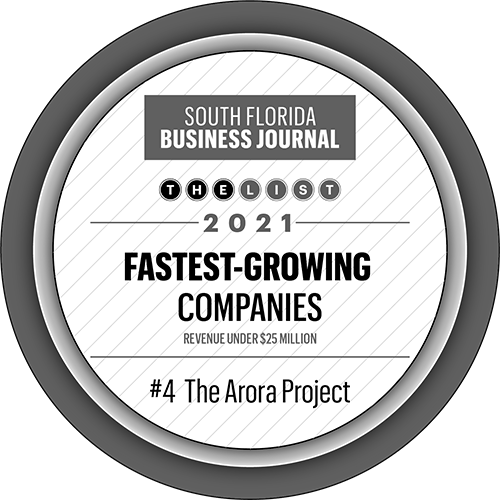There are more ways than ever to secure funding for your startup. In this week’s edition of the Arora Blog, we’re comparing and contrasting one of the oldest (private equity) and the newest (equity crowdfunding). Wondering which is the best option for you? Stick around.

Until the United States’ JOBS Act was passed in 2016, only accredited investors (those with a high net worth or valuable assets) were legally allowed to invest in private companies. High-net-worth-individuals (HNWI), venture capitalists, and hedge funds had exclusive access to investing before a company went public. Everyone else had to wait to buy shares post-IPO, and at a higher price.
Decades of this traditional and exclusionary system left three major groups massively underserved:
1.) Startups seeking seed capital, but located outside of major VC cities. Because traditional angel investing and venture capital is very network-based, and most of these investors are in large cities, startups located outside of coastal cities and metropolitan areas generally lacked the necessary connections needed to secure VC money.
2.) Retail investors, or nonaccredited investors. For the typical investor, the stock market was often too expensive to participate in, as post-IPO companies trade at much higher stock prices and minimums. On the flip side, smaller companies that could have greatly benefitted from smaller capital infusions had no legal way to solicit investments from everyday investors.
3. Founders and entrepreneurs who are not wealthy, white, or male. With venture capital and angel investing as the primary mode of raising capital to scale a business, diverse founders miss out on most funding opportunities. Even as recently as 2021, only 2.2% of venture capital went to startups with solely female founders, 1.4% to Black founders, and 2% to Latino founders.
But to have an actual conversation about the entrenched systems that work against the tenets of equity crowdfunding (inclusion and diversity) we need to go back to where it all started: private equity funding.
What is private equity funding?
Private equity funding has historically been the gold standard for funding startups—but what, exactly, is it?
Private equity is when investors pool money to invest in a startup or early stage business in exchange for equity. Investors may be HNWIs or institutional. It’s all pooled into a fund, then invested into startups vetted by the fund manager.
If the fund manager did their due diligence and received a little luck from the investing gods, the startup that received the capital grows large enough for the private equity fund to distribute profits to the investors.
However, the typical timeline to see returns from private equity investing isn’t weeks or even months—it’s years.
How Private Investments Become Profitable
Investors see returns when one of three things occurs:
- Initial Private Offering (IPO): When a private company chooses to make their stock publicly available on the stock market.
- Merger or acquisition: The company who received investment capital was purchased by a separate entity and all previously-owned shares are bought out by the new owning party.
- Recapitalization: This is similar to when public companies pay shareholder dividends; the company decides to pay dividends to shareholders, including the private equity fund.
Who Benefits From Private Equity?
Lots of people!
Global private equity transactions hit approximately $1.2 trillion in 2021—that’s a lot of money invested, and a lot of companies who received capital.
However, there are many robust changes to private equity necessary before it can be considered a truly viable way for most startups to gain capital. As mentioned before, companies founded by white men in large metropolitan areas receive a disproportionate amount of capital from traditional methods, such as private equity funding.
The Pitfalls of Private Equity: Strings Attached
While there is potential for startups to get a huge and necessary influx of capital via private equity funding, that capital comes with a price: the risk of losing control of their company.
Private equity firms are able to invest large amounts of cash, but that cash comes with conditions. Once the founders sign on the dotted line, they’re indebted to the private equity fund until the debt is paid off or the shares are returned.
Many fund managers will take a hands-on approach to the day-to-day operations of a startup to ensure the success of their investment. This may cause tension or a misdirection away from the founder’s original vision.
Equity Crowdfunding: a New Path Forward
Equity crowdfunding has only been legal for nonaccredited investors since 2016, but has exploded in popularity since its inception. In 2021 alone, $502 million was invested via equity crowdfunding compared to $76.8 million in 2017 (the first full year of legal equity crowdfunding). That’s a CAGR of more than 6% in just 5 years!
At its core, equity crowdfunding is a method to raise startup capital through family, friends, customers, and individual retail investors. In fact, there’s been a recent rebranding movement in the equity crowdfunding industry to change the name “equity crowdfunding” to the more accessible “community round” for that very reason: a startup’s customers, clients, and network can be the most valuable investors.
Much like private equity funding, equity crowdfunding investors become part owners in the company and have the opportunity to receive a financial return on their investment as the company grows.
And just like private equity, there is no secondary market for shares purchased via equity investing. Once you buy them, you own them until the company exits or goes public (at which point shares can be sold on the stock exchange.)
Who Benefits From Equity Crowdfunding?
Crowdfunding proponents claim that equity crowdfunding is the most universally beneficial to the greatest number of people when it comes to startup investing.
Here’s are some of the most common benefits of equity crowdfunding for startups and investors:
- Expert insight & market research: Startups can receive feedback and guidance from industry experts, plus the opinions and reactions from the public (this is invaluable market research!)
- Equal opportunity, regardless of location: Founders outside of major metropolitan areas can find necessary funding from global investors.
- Brand marketing: Companies can convert their investors into customers, creating an effective and often lucrative pipeline.
- Affordable investments: Equity crowdfunding is generally extremely accessible for most retail investors with platforms that allow investments as low as $10.
- Bias for socially-beneficial companies: Ventures that benefit society have been found to outperform other market segments, making equity crowdfunding one of the better options for people and the planet.
- Diversity & inclusion: Equity crowdfunding gives more equal opportunities to people of color, women, and people from underrepresented backgrounds compared to traditional capital.
Pitfalls of Equity Crowdfunding
As industry experts in crowdfunding, we’re also pretty clear-eyed about the downsides:
- Equity crowdfunding is inherently risky. Startups are generally more volatile than more stable publicly traded companies. This makes loss much more likely than stock market investing.
- It can get a little crowded. Hey, it’s right there in the name—crowdfunding. Companies who equity crowdfund may end up with hundreds or even thousands of investors they become accountable to.
- It may be all-or-nothing. If an equity crowdfunding campaign underperforms, it’s quite possible the startup won’t receive any funding due to the all-or-nothing nature of the industry
- It’s stressful and a lot of work. Running a full-scale campaign is time consuming, creatively taxing, and requires constant hands-on management to be successful. The days of a campaign going viral and meeting their goal overnight are over—only savvy marketers who activate their company’s crowd will be successful, and sometimes even that isn’t enough.
Private vs Crowd?
Private equity funding and equity crowdfunding don’t have to be mutually exclusive. In fact, many startups will take advantage of both kinds of funding on their journey to success.
Even though we are champions for the transformative power of equity crowdfunding, we aren’t anti-VC! Our mission is to help high-growth ventures scale with all resources available to them, including private equity.
That being said, if you’re a founder ready to embrace equity crowdfunding to secure capital for your startup but want a little help navigating the waters, we’ve got you covered.








